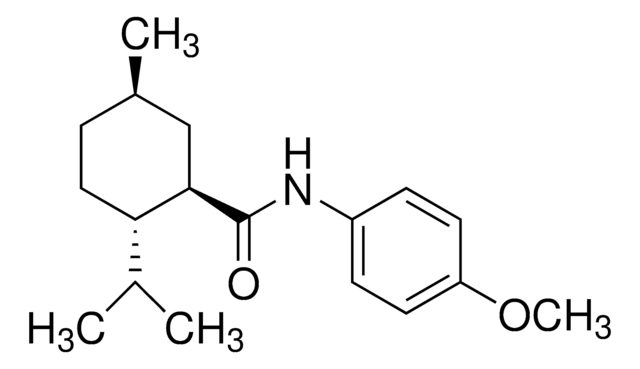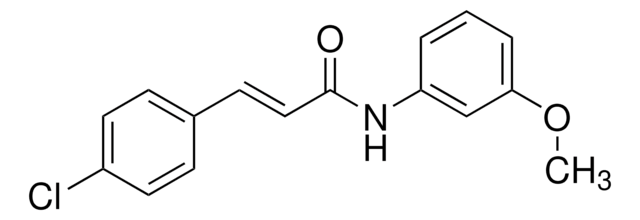SML0360
TAK-715
≥98% (HPLC)
Synonym(s):
N-(4-(2-Ethyl-4-(3-methylphenyl)-1,3-thiazol-5-yl)-2-pyridyl)benzamide
About This Item
Recommended Products
Quality Level
Assay
≥98% (HPLC)
form
powder
color
faintly yellow to dark yellow
solubility
DMSO: >15 mg/mL
storage temp.
2-8°C
SMILES string
CCc1nc(-c2cccc(C)c2)c(s1)-c3ccnc(NC(=O)c4ccccc4)c3
InChI
1S/C24H21N3OS/c1-3-21-27-22(18-11-7-8-16(2)14-18)23(29-21)19-12-13-25-20(15-19)26-24(28)17-9-5-4-6-10-17/h4-15H,3H2,1-2H3,(H,25,26,28)
InChI key
HEKAIDKUDLCBRU-UHFFFAOYSA-N
Gene Information
human ... MAPK14(1432)
Biochem/physiol Actions
Features and Benefits
Signal Word
Warning
Hazard Statements
Precautionary Statements
Hazard Classifications
Acute Tox. 4 Oral - Eye Irrit. 2
Storage Class Code
11 - Combustible Solids
WGK
WGK 3
Flash Point(F)
Not applicable
Flash Point(C)
Not applicable
Certificates of Analysis (COA)
Search for Certificates of Analysis (COA) by entering the products Lot/Batch Number. Lot and Batch Numbers can be found on a product’s label following the words ‘Lot’ or ‘Batch’.
Already Own This Product?
Find documentation for the products that you have recently purchased in the Document Library.
Articles
The mitogen-activated protein kinase (MAPK) family consists of stress-activated (SAPK) and MAPKs. Learn about their network of signal transduction cascades that mediate cellular responses to a diverse range of stimuli.
The mitogen-activated protein kinase (MAPK) family consists of stress-activated (SAPK) and MAPKs. Learn about their network of signal transduction cascades that mediate cellular responses to a diverse range of stimuli.
The mitogen-activated protein kinase (MAPK) family consists of stress-activated (SAPK) and MAPKs. Learn about their network of signal transduction cascades that mediate cellular responses to a diverse range of stimuli.
The mitogen-activated protein kinase (MAPK) family consists of stress-activated (SAPK) and MAPKs. Learn about their network of signal transduction cascades that mediate cellular responses to a diverse range of stimuli.
Our team of scientists has experience in all areas of research including Life Science, Material Science, Chemical Synthesis, Chromatography, Analytical and many others.
Contact Technical Service









